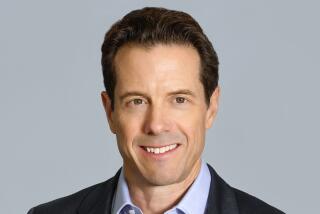A top Google techie joins EMI
- Share via
SAN FRANCISCO — One of Google Inc.’s top engineers is leaving the Internet giant to help record label EMI Group figure out how to turn around its struggling business, a music industry executive said Tuesday.
Douglas Merrill, Google’s vice president of engineering, will join EMI as president of digital, said the person, who requested anonymity because the hire had not yet been announced.
Google, which has lost several high-ranking executives in recent months, confirmed Merrill’s departure.
“We are grateful for his time and we wish him the best of luck,” Google spokesman Matt Furman said.
The hire comes at a time when EMI and other top music companies are cutting costs and trying to come up with new business models to offset plummeting CD sales.
EMI, the world’s fourth-largest music company, has been cutting costs since it was bought last summer by private equity firm Terra Firma for $4 billion, excluding debt. But the company has continued to lose money under new Chief Executive Guy Hands, industry sources say.
London-based EMI cut a quarter of its workforce in January. The reductions are expected to leave EMI with about 4,500 employees, down from more than 15,000 in the early 1990s.
Hands told musicians that EMI would eliminate the large advances it pays top artists. Instead, it would pay once it sees how a recording sells. Some top acts have left EMI.
It’s unclear how Merrill plans to improve the company’s fortunes. EMI declined to comment.
Merrill joined Google late in 2003 as senior director of information systems. Previously, he was senior vice president at investment firm Charles Schwab & Co.
The job of president of digital at EMI had been offered to at least one other outside executive, according to an employee familiar with the process. The choice surprised EMI insiders because of Merrill’s lack of music-industry experience. Some wondered why he would join a company bedeviled by an industrywide crisis.
“It’s a bold move, very exciting,” an industry veteran said. “The question is, why did he say yes?”
Times staff writers Joseph Menn and Jessica Guynn contributed to this report.
More to Read
The biggest entertainment stories
Get our big stories about Hollywood, film, television, music, arts, culture and more right in your inbox as soon as they publish.
You may occasionally receive promotional content from the Los Angeles Times.










